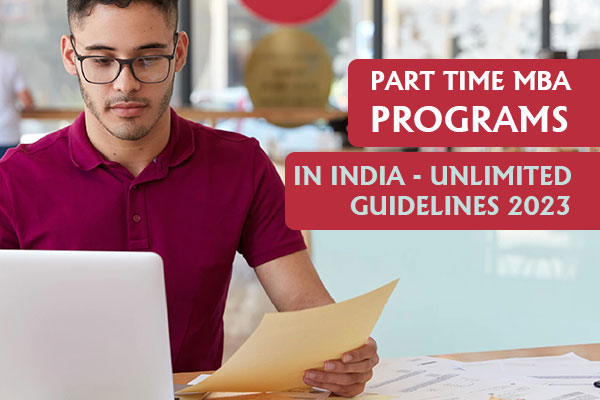UPSC Civil Services Exam: Strategies and Tips for Aspiring Civil Servants
The Civil Services Examination (CSE) is a nationwide competitive examination conducted by the Union Public Service Commission (UPSC). The purpose of the exam is to find suitable candidates for a range of administrative roles in the Indian Civil Service, such as the Indian Police Service (IPS), Indian Administrative Service (IAS), Indian Foreign Service (IFS), and other central government services. This year, the UPSC Prelims exam is scheduled for June 16, 2024, and the UPSC CSE Mains exam for September 20, 2024.
Exam Pattern
The exam consists of three stages: preliminary examination (prelims), main examination (mains), and personality test/interview.
Stage 1 – Preliminary Examination -
It serves as a screening test for candidates aspiring to join the Indian Administrative Service (IAS), Indian Foreign Service (IFS), Indian Police Service (IPS), and other Group A and Group B services under the central government.
-
Paper I: General Studies (GS) - This paper tests candidates' knowledge in areas such as current affairs, history, geography, politics, economics, science, and the environment.
-
Paper II: CSAT (Civil Services Aptitude Test) -This paper evaluates candidates' aptitude and comprehension skills.
Candidates need to qualify for the preliminary examination to appear for the main examination.
Exam Pattern
Stage 2 – Main Examination –
It is a description-type exam consisting of nine papers, of which two are qualifying papers and seven are merit-based papers. The qualifying papers include an Indian-language paper and an English-language paper. The merit-based papers cover various subjects such as essays, general studies, and optional subjects chosen by the candidates. The Main Examination is conducted to assess the candidates' comprehensive understanding of various subjects, critical thinking ability, analytical skills, and overall suitability for administrative positions in the Indian bureaucracy.
Stage 3 – Personality Test/Interview
Stage 3 is the final exam. After qualifying for the main examination, candidates are called for the personality test, also known as the interview. This stage evaluates the candidate's personality, communication skills, knowledge, and suitability for a career in the civil service.
Marking scheme
The preliminary examination consists of two compulsory papers worth 200 marks each. For the final selection, the grand total marks are 2025, of which 1750 are for the written test and 275 are for the personality test. The final selection is based on marks obtained in a written test and a personality test.
Final Selection
A merit list is prepared based on the total marks obtained in stages 2 and 3 of the exam process. Those who are recommended for an appointment need to undergo a medical examination to verify their physical fitness. Candidates who successfully complete all these stages and meet the required criteria are selected for various civil service positions. The UPSC selection process is highly competitive and demands thorough preparation and dedication from candidates.
Number of Attempts -
Every eligible candidate appearing at the examination is permitted six attempts at the CSE. However, the number of attempts is relaxed for SC/ST/OBC and PwBD category candidates. SC/ST has an unlimited number of attempts, and OBC and PwD (GL/EWS/OBC Unlimited for SC/ST) have 9 attempts for the exam.
Eligibility Criteria
Nationality
For the Indian Foreign Service, the Indian Administrative Service, and the Indian Police Service, a candidate must be a citizen of India.
For other services, a candidate must be either –
- A citizen of India, or
- A subject of Nepal, or
- A subject of Bhutan, or
- A Tibetan refugee who came over to India before January 1, 1962, with the intention of permanently settling in India or
- A person of Indian origin who has migrated from Pakistan, Burma, Sri Lanka, the East African countries of Kenya, Uganda, the United Republic of Tanzania, Zambia, Malawi, Zaire, Ethiopia, and Vietnam with the intention of permanently settling in India.
Age Limits
A candidate cannot be older than 21 years old on August 1, 2024, or older than 32 years old. The candidate's birth date must have been between August 2, 1992, and August 1, 2003.
The relaxed age limit
- For OBC: 3 years
- For SC/ST: 5 years
- For ex-servicemen: 5 years
- For Persons with Benchmark Disability: 10 Years
- For ECOs and SSCOs: 5 years
Minimum Educational Qualification
A candidate must hold a graduate degree from any of the universities incorporated by –
- An Act of the Central or State Legislature in India or
- Other educational institutions established by an Act of Parliament or
- Declared to be deemed a university under Section 3 of the University Grants Commission Act, 1956, or possess an equivalent qualification
Exam Preparation
Preparing for the Civil Services Exam (CSE) requires dedication, perseverance, and a strategic approach. Here are some tips to help students prepare effectively –
-
Understand the Exam Pattern The candidates need to familiarize themselves with the exam pattern, which includes three stages.
-
Know the Syllabus— The candidates need to understand the syllabus thoroughly for both the preliminary and main examinations. The syllabus is vast and covers a wide range of subjects, including history, geography, politics, economy, science, and current affairs.
-
Refer to Standard Books - Utilize standard reference books recommended by experts for each subject.
-
Current Affairs The candidates need to stay updated with current affairs through newspapers, magazines, and reliable online sources.
-
Practice Previous Years' Papers - Solving previous question papers helps to understand the exam pattern, question format, and difficulty level. This also helps in time management.
-
Develop Answer Writing Skills Candidates should practice answer writing regularly for the main examination. Focus on clarity, conciseness, and coherence in the answers.
Read Also:
Mangalayatan University Jabalpur Madhya Pradesh
Sikkim Professional University
Top Courses
Updates
-

Part Time MBA Programs in India - Unlimited guidelines 2023
September 09, 2022 -

Can I Pursue a Part Time B.Tech after Getting My Diploma?
September 09, 2022 -

7 Best Universities Offering Part-time M.Tech
September 05, 2022 -

Best Part-time B Tech University/ Colleges In India?
June 28, 2022

